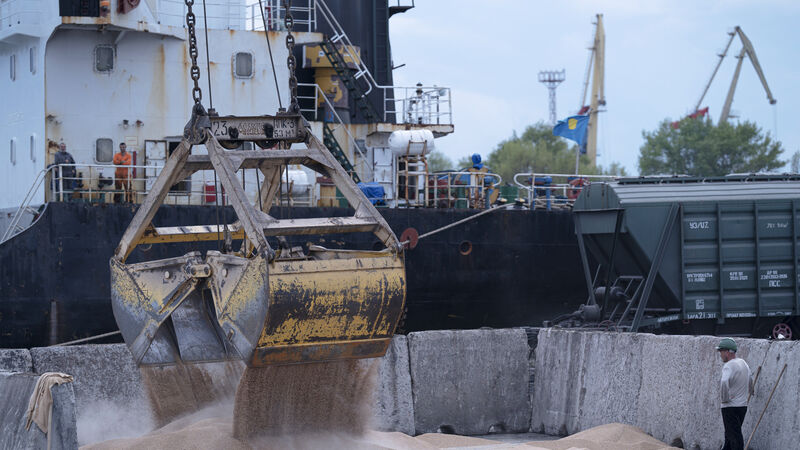Global wheat prices focus on escalating Black Sea attacks

In the days since its withdrawal from the accord, which was initially agreed a year ago, Russia has repeatedly targeted Ukraine’s agriculture infrastructure — shelling ports and damaging crop terminals. File picture
Global wheat prices fluctuated as threats surrounding grains trade in the Black Sea escalated, with both Ukraine and Russia warning that ships headed to each other’s ports could be considered military targets.
Ukraine issued a tit-for-tat response to an earlier warning from Moscow, after US intelligence alerted that Russia had laid explosives at Ukrainian ports. The Black Sea is a key exit route for agricultural commodities from both countries, and the threats raise the risk of global food trade facing mounting obstacles and pushing up prices.














